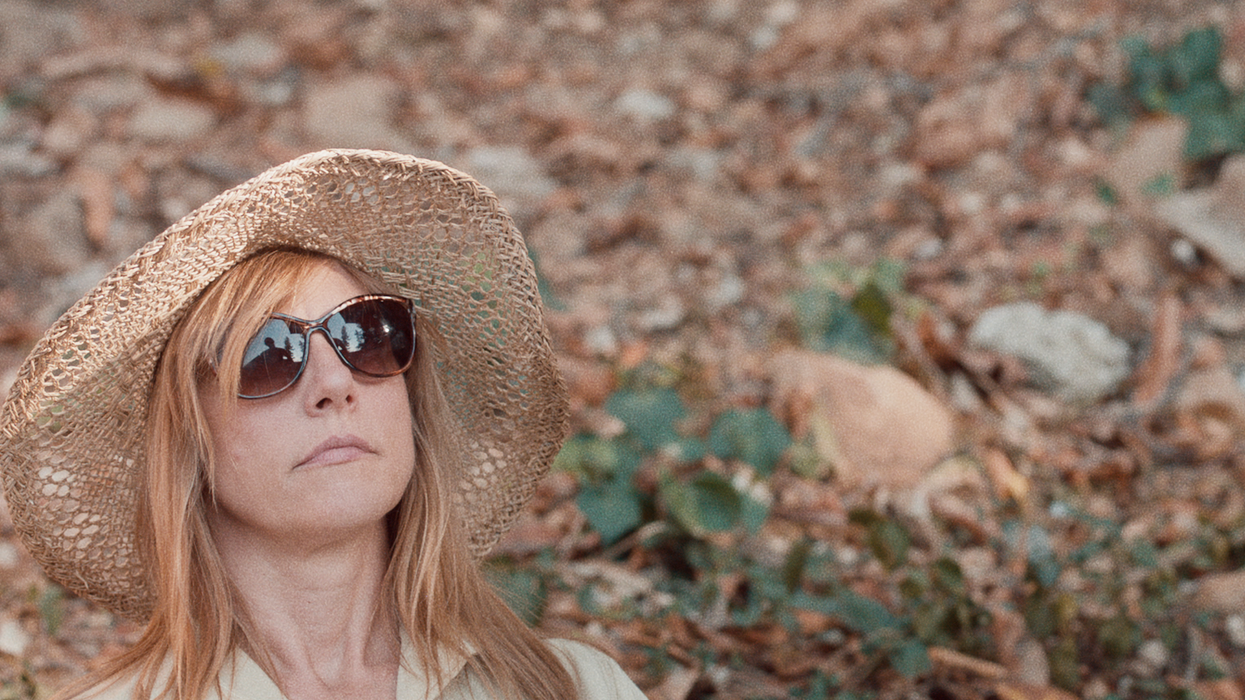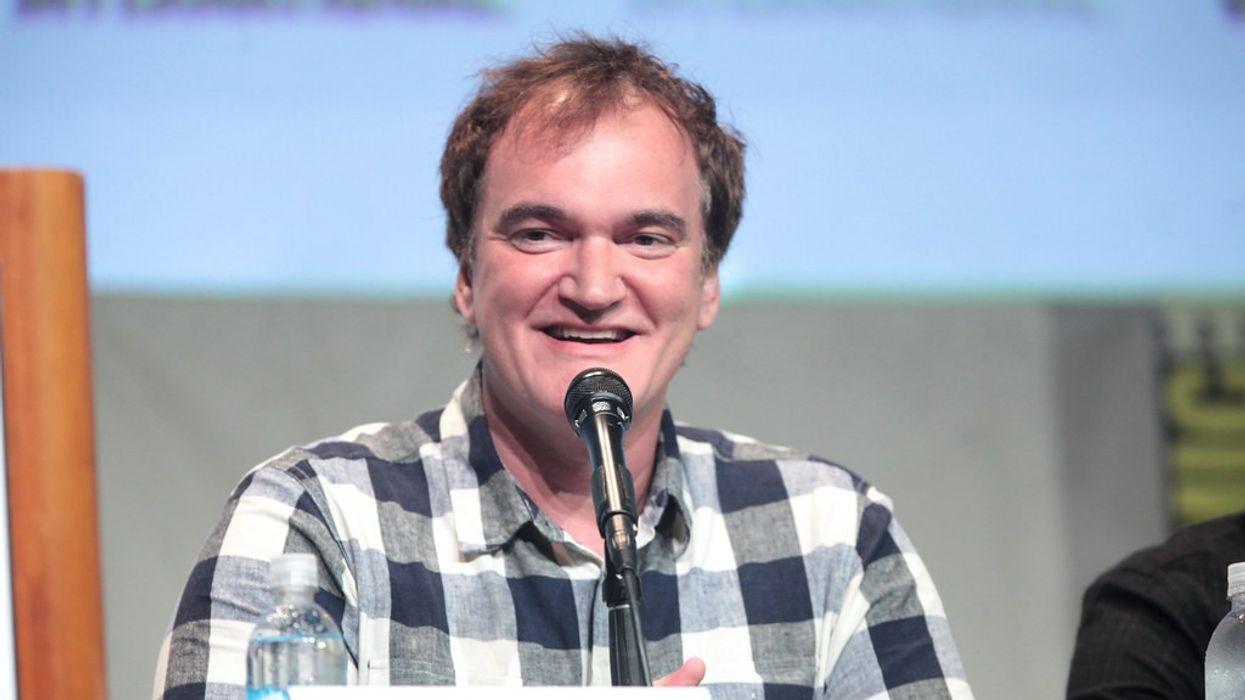Here's Why Director Joey Izzo Released His Cannes Followup 'My Daughter's Boyfriend' Directly Online
Coming off his Cannes qualifying short film Stepsister, writer/director Joey Izzo decided to skip festivals entirely and go directly online with his followup film My Daughter's Boyfriend.

Released online yesterday via Short of the Week, My Daughter's Boyfriend is a dark, intimate and funny exploration into the psyche of protective motherhood. The result is a sharply focussed, sensitive, and sardonic film that grapples with what it means to love. We chatted with Joey about his creative process and distribution decisions.
Watch the trailer here or the full film below:
NFS: What draws you to the short film format?
Joey: A lot of it comes down to pure pragmatism and economics. I've kind of crawled into narrative filmmaking. I came from the film analog tradition and working in more experimental routes. When I came to make short films, a lot of the narrative filmmakers I had come to appreciate definitely recognize and understand and incorporate experimental film technique and documentary form into their work. So shooting [Stepsister] in my apartment, in my neighborhood, creating characters that I feel like I've seen around town — it wasn't just a matter of pragmatism at that point, that's what to me felt like personal filmmaking.
NFS: How did you make the shift from experimental to realism?
Joey: What experimental film taught me is that there aren't any rules — but you have to create the rules to have any kind of meaning or impact behind the work. So even if there aren’t three act structure rules, there are rules you need to identify and create for yourself. When I was dipping into narrative I wanted to make sure I wasn’t asking a performer to do something that I couldn’t do myself or something that I didn’t understand. It was very important that it was logically coherent to whoever is performing it, and not relying on their skills to bail me out.
I’m trying to create characters and scenarios that an actor can take ownership of.
NFS: What's your process of writing for and directing your actors?
Joey: I’m more listening and paying attention to what they’re doing. I’m never performing the takes themselves, but in terms of my writing process I’m trying to create characters and scenarios that an actor can take ownership of. Casting and writing are taking place at the same time, and that's important because I have certain people in mind. So when an actor is given a script, for the most part they already feel like it's something they can do because it's written in their voice already. Then it’s a matter of doing a lot takes and letting a lot of specifics be created by their performance and rolling with what’s actually happening. You’re documenting something that’s actually happening. That's what I got from the documentary world: a respect for performance, not as something that is a means to an end for "my story" — I think "my story" is just there to set up actors to then recreate the story. And hopefully if I've casted it well I'm delighted by how the story transforms.
The reason I didn’t want to get into narrative filmmaking because I had this idea of this domineering director shouting at people, this guy that knows everything about the script, who knows how to get the result that he wants. That idea just never appealed to me. So when I started to study more film and more naturalist filmmakers — like the Dardenne brothers, Cassavettes, Maurice Pialat — it was something I connected to a lot more. The idea of it being a partnership and finding what collaboration really means, which for me is a matter of making people feel empowered to make their own choices. So I try to create productions that cater to that even with a very small budget.
NFS: It feels like the actor is the one creating the moment and it makes you very present with the film. That's not easy to do.
Joey: Well thank you. That idea of presence and the sense of it actually happening, the sense of a real-time moment has always been really interesting to me. Movies that feel like they are just trying to lead to an ending — I just don’t understand how to make a movie like that. Sure, there is causality, a logical narrative cohesion to it, but hopefully every moment has a sense of real-time and unknowingness. These characters are vulnerable, or interacting with people who are hurting them. Everyone has their own reasons for doing things and that’s what I want to focus on. Letting people talk to each other, and not just using people to manipulate a plot.
To only look at the surface is to miss the point entirely.
NFS: Noticing some thematic ground between the two films, what interests you about things that happen behind closed doors, people's secrets and their interior lives?
Joey: I'm delighted that you picked up on that because that really is my supreme interest. I’ve looked for films throughout my life to form bonds with people, or to build actual intimate relationships. So even sometimes the characters in my films are doing bad things to people, I feel like by allowing an audience to see the inner workings of what's happening with somebody and how they express it and the hypocrisy of that, just feels real to my life.
For example, if I'm about to meet up with my friends, but I know this guy has had an affair and I have to go to dinner with him and his girlfriend and I have to act like I don’t know he’s having an affair. So much of our lives is that thing — even if we don’t know it — everyone is coming with their own motivations, their own secrets, and their own desires. To only look at the surface is to miss the point entirely. I think my interest in secrets is just my interest in the internal mechanisms that drive our relationships and our bonds. Sometimes that can look ugly — the means to love or to protect somebody are sometimes ugly or manipulative or secretive or passive aggressive. They aren’t heroes or villains. My responsibility as a director is not necessarily to tell the audience how to feel about a character or a scenario, but just to pack it with enough meaning and agency from the characters that an audience can pick up on the reality and be delighted with the level of intimacy that they wouldn't get if they were to just hear this conversation happening on the street. So I feel like I'm using filmmaking in general to be intimate with people and to sort of air all our dirty laundry.
There’s a lot to be said about keeping the ball moving, and there’s so much to learn by getting it front of an audience, and a laurel doesn’t give you that.
NFS: How did you decide to release My Daughter's Boyfriend online after your last short went to Cannes?
Joey: The truth is, this one didn't get into the festivals. Stepsister got into Cannes, but this one got into like 2 festivals after applying for like 20. Even though I have these good festivals under my belt, the ratio is still well under my favor. I don't think I've ever made a film that's been a festival darling, I don't know how to do that. This one was odd, it always scored incredibly high marks with programmers but when it came down to the programming of it I think it rubbed some people the wrong way.
So I realized that if I believe in this film that maybe the best thing would be to find its audience online. That came after I posted Stepsister online and Short of the Week premiered it, and it got a Staff Pick and it got a lot more attention than it ever did at Cannes or San Francisco International. Even at these big prestigious film festivals, as a short film you're still at the bottom of the barrel, and there’s diminishing returns from that kind of thing. There’s a lot to be said about keeping the ball moving, and there’s so much to learn by getting it front of an audience, and a laurel doesn’t give you that.
...
Thanks to Joey for talking to us. You can check out Joey's other work by visiting his website.
Source: Short of the Week















